It would be logical to place the blame for a rise in forecourt crime on soaring fuel prices, but according to the British Oil Security Syndicate (BOSS), there are wider factors at work.
BOSS carries out quarterly surveys of its members to monitor the scale of financial losses incurred by theft of fuel from their forecourts, and figures show that drive-offs hit a peak in the first three months of this year, while incidents of no means of payment spiked in the last three months of 2011.
Kevin Eastwood, executive director of BOSS, says: "These variations have not been driven entirely by fuel price rises, which have only added about 3% over the last three quarters. This means that the net number of litres taken per site has been increasing and, by implication, so has the number of incidents.
"This is a reversal of the trend we’ve observed over several years for losses to increase at a slower rate than pump prices. Despite the positive influence of factors including the reclassification of drive-offs as a criminal offence, widespread take-up of BOSS crime-fighting initiatives and technologies such as automatic number plate recognition (ANPR), it’s possible that the sustained lack of economic growth is a new factor that is having an effect."
BOSS has now established more than 120 Forecourt Watch schemes, which are designed to deter criminals, develop productive working relationships between retailers and a named local police contact, and put in place standardised recording and reporting procedures. "Forecourt Watch has proved highly successful in reducing losses and the associated bureaucracy for retailers, and easing demand on increasingly pressurised police resources," says Eastwood. "In areas where Forecourt Watch schemes operate, forecourt crime can fall by up to 55%."
The BOSS Payment Watch scheme, which was launched in August 2011 to address the rising number of incidents where motorists claim not to have any means of payment and then fail to return to settle their debt, is continuing to prove extremely popular and effective, helping participating retailers to recover up to 80% of financial losses incurred through these incidents. "About 1,100 service stations have now become Payment Watch members and this number is growing all the time," says Eastwood. "Feedback from Payment Watch members is exceedingly positive many tell us that a significant number of drivers who have claimed to be unable to pay find a way to do so when they’re presented with the official, police-branded documentation. Of those who can’t settle on site, many return to pay within a few days."
To help retailers get even more value from BOSS schemes, the organisation is developing new technologies to make reporting quicker and easier. An electronic reporting scheme is now being trialled by two police forces. "The system benefits retailers by making it quick and easy to submit a report online following a suspected crime," says Eastwood. "For police the advantage is that detailed information about incidents is received early, meaning that swift action can be taken and also significantly increasing opportunities for detection.
"During the early stages of the latest trial we’ve seen very encouraging results, with reports being acted on by police within minutes of being submitted. We hope to be able to roll out electronic reporting to other police forces in the coming months, helping to save police time and bring swift justice to offenders."
Additionally, BOSS is working to develop a national database of registration marks of all vehicles known to be associated with incidents of non-payment for fuel. Retailers would be able to link their ANPR system to the database and an alert would be triggered when a vehicle on the database is detected. Then the pump could either be automatically disabled or the site staff could manually decline to authorise the pump, inviting the motorist to pay in advance for their fuel. Cashiers would be able to supply information on how to contact the database management to correct errors.
BOSS has also published a manual Drive-off Prevention: a Useful Guide for Fuel Retailers which helps retailers to spot and prevent potential drive-offs. It is working with a number of police forces, which are distributing the publication to retailers in their force area with some very positive results. "The guide is supporting a successful crime reduction training initiative in Rossendale, Lancashire," reveals Eastwood. "The training is based on the practical advice in the guide and has contributed to a considerable reduction in the number of drive-offs in the area, which are down by 62% compared to the same period last year. More offenders are facing justice and more than £1,100 has been paid back to retailers by motorists who had failed to pay for their fuel."
Major theft
Recent years have seen the emergence of a new type of forecourt crime where organised criminals steal thousands of litres from underground storage tanks while sites are closed. BOSS shares data and intelligence on this issue with police forces, in particular in the West Midlands, West Mercia and the Central Motorway Police Group (CMPG), and so far, 11 people have been arrested, three are serving prison terms and eight more are held pending court proceedings. "Thieves target closed forecourts and can take 12,000 litres of diesel in under 20 minutes," warns Eastwood. "Incidents remain rare but for the individual service stations affected, the financial and business impact is obvious. Staff training is vital to prevention and security never divulge information about deliveries or stock levels without checking who’s asking and, if in doubt, don’t give it out."
Two companies have introduced equipment that could prevent bulk fuel theft from underground tanks. Berrys offers the Mono chamber system, which incorporates a locking cover to the existing chambers, while Eurotank Environmental has been trialling its EurotankGuard system which uses wireless technology to alert retailers when a tank manhole or access point has been lifted with Morrisons.
Surveillance
Atul Rajput, surveillance specialist at Axis Communications, says CCTV is playing a pivotal role in helping forecourts overcome their security challenges.
"Although analogue CCTV still dominates the sector, forecourt retailers are beginning to realise its limitations and appreciate the additional benefits a digital or IP-based system can deliver," he says. "Forecourt retailers looking to improve their security measures have started to embrace HDTV (high definition television) cameras for security. Just as the consumer television market is moving rapidly towards HDTV, so too is the video surveillance market,as customers demand better, usable image quality."
Rajput says there are many security challenges that forecourt retailers face, especially around maintaining safety while reducing theft and shrinkage and the use of intelligent video analytics, software that analyses the video footage for a specific purpose. "For example, to enhance safety, analytics exist to help with real-time detection and prevention through instantly alerting forecourt staff of a hazardous spillage in the forecourt area," he says. "Similarly, video analytics can be effectively used to increase loss prevention measures. Surveillance systems in forecourt retail outlets record a huge amount of video that is never watched or reviewed, due mainly to resource constraints.
"Intelligent video can help to reduce the vast amount of information contained in video and analyse incidents based on pre-defined rules," he adds. "For example, if there is a suspicion of stock loss, store owners can be notified when a member of staff is in the stockroom and link directly to the associated video recording, simply by using IP (internet-based cameras with embedded video motion detection capabilities."
Axis advises forecourt retailers to consider HDTV IP cameras with on-board storage for edge recording (where the footage is recorded within the camera on removable media), as a base platform for their video surveillance system. "Entry-level HDTV IP cameras are now far more affordable and vastly outperform their analogue counterparts," says Rajput. "They act as a deterrent and significantly increase a forecourt retailer’s ability to detect incidents, identify individuals and produce video evidence that’s more likely to lead to prosecution. In the end, all of this leads to reduced claims and potentially reduced insurance premiums."
A recent Axis-sponsored survey carried out by the Centre for Retail Research looking into the current use and likely trends of CCTV in retail, revealed that almost two-thirds of UK retailers were interested in IP cameras with on-board recording. "Edge recording eliminates the need for a separate external recording server, as all recordings reside within the camera and can be reviewed locally in-store or remotely," says Rajput. "This reduces the cost and complexity of installation and, more importantly, removes the need for maintenance and support of an external recording device. In a forecourt, this would be ideal for a system running up to 16 cameras."
Meanwhile, Tokehim has collaborated with Metro Security to develop an integrated CCTV system that combines fuel delivery with retail POS and CCTV. Tokheim Eye only stores relevant images so retailers can quickly view images captured from the cameras as soon as movement is detected. The system stores the receipt and filling number with the images, which means that retailers can retrieve images of events or a particular filling or transaction by receipt or filling number as well as by date and time.
Ron Perry, who runs three forecourts in the North East of England, has been trialling Tokheim Eye for three months. "The beauty of Tokheim Eye is that it’s linked into the till and you can access data through the internet and on an iPad or iPhone," says Ron. "It remembers number plates so you can identify repeat customers, which means that when they come up to the till, you know what they bought before and can then target them with specific products or promotions."
The technology has put a stop to motorists giving cashiers the wrong pump number and, while drive-offs were not a massive problem on Ron’s sites, it also prevents thieves from targeting his forecourts. "When the customer pulls the nozzle out, the system takes a photo of them and records them throughout the transaction. When they tell the cashier their pump number, a photo of them comes up on the till screen so staff can identify if it’s the correct person. On a busy forecourt customers can easily give the wrong pump number and the cashier ends up charging for the wrong amount.
"If someone has forgotten to pay, you can easily see at which point they forgot," adds Ron.
"It also allows me to keep an eye on the staff. Because I can view the CCTV remotely, they don’t know whether I’m looking in real-time or not.
"Every business has problems with staff and you have to put a lot of trust in your staff. I now have a better idea of what’s going on We lose about £2-3,000 a year in drive-offs and while it’s too early to say if the system has eradicated that, it’s definitely a deterrent."
increased security demand
Research undertaken by security trade body the British Security Industry Association (BSIA) has revealed an increase in demand for security from the retail sector over the past 12 months, with petty theft, shoplifting and theft by employees the biggest causes of this rise.
The survey, which aimed to identify trends in retail security over the past year, was completed by companies from across all sections of BSIA membership. More than 85% of respondents claimed that the use of private security measures in retail has either remained static or increased over the past 12 months, with 65% also expecting a further increase as we move into 2013. BSIA’s survey showed that shoplifting and petty theft were perceived by security providers to be the biggest threat to retail security, closely followed by so-called ’inside jobs’ that is theft by retail employees, which was highlighted as a threat by 20% of respondents.
Electronic security solutions are proving particularly popular in the fight against retail crime and newer technology, such as lone worker protection devices, is also becoming increasingly popular in a retail setting. Equipped with mobile phone technology, such devices connect employees quickly and discreetly with an emergency response system that has direct links to the police.























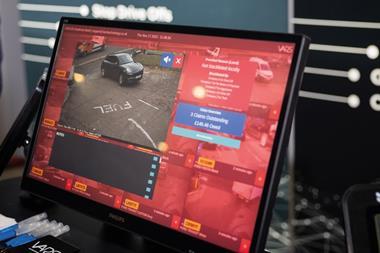
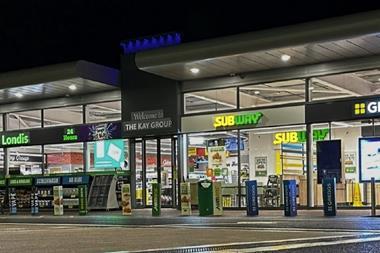

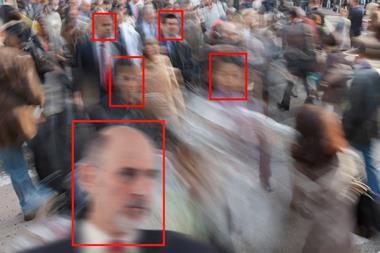
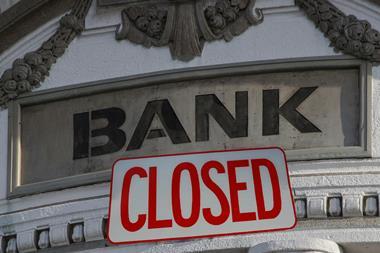


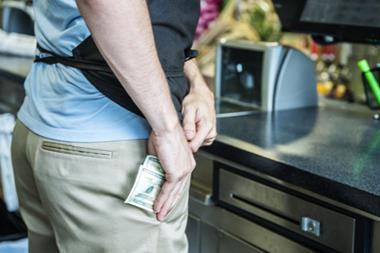

No comments yet